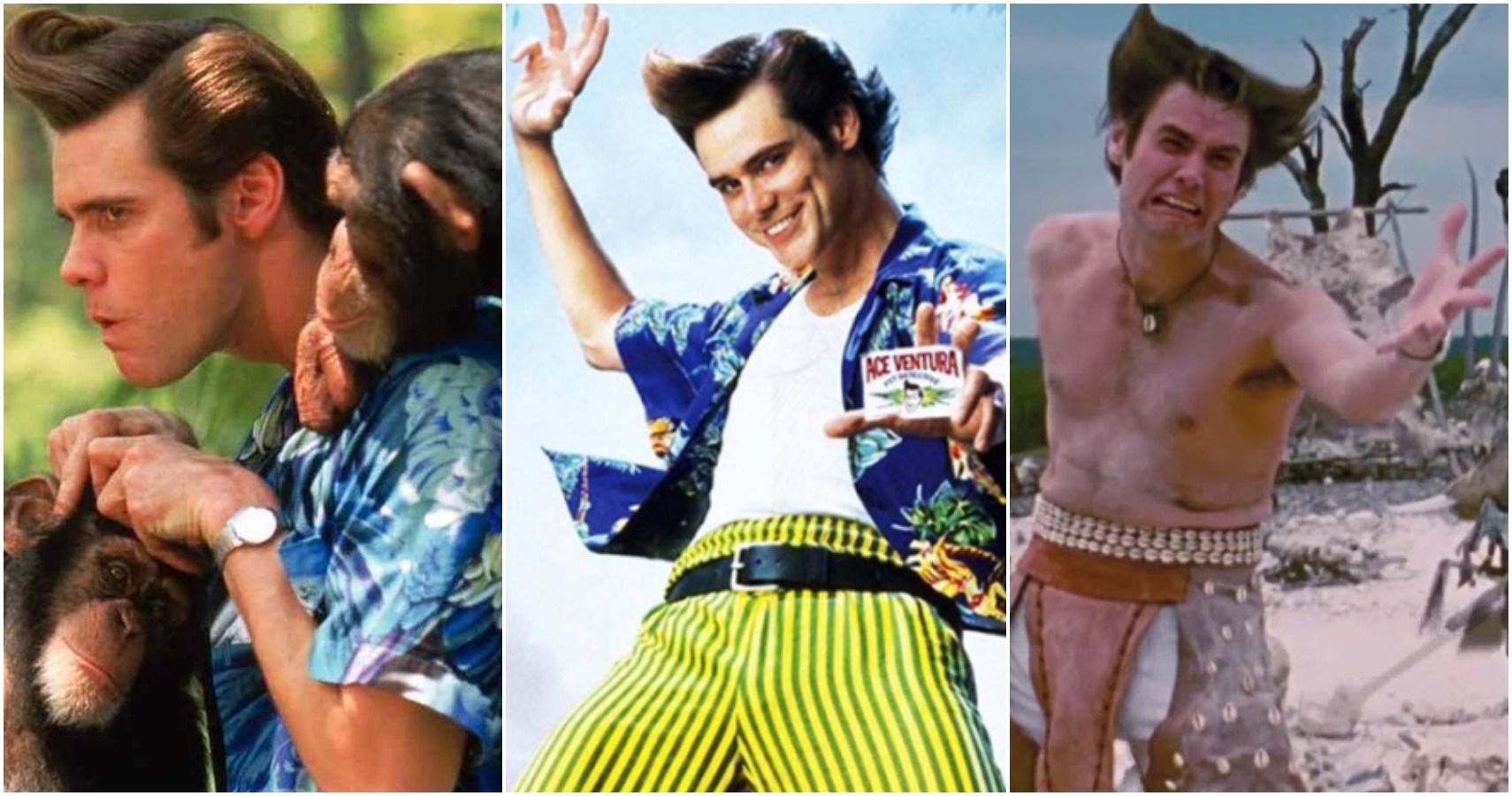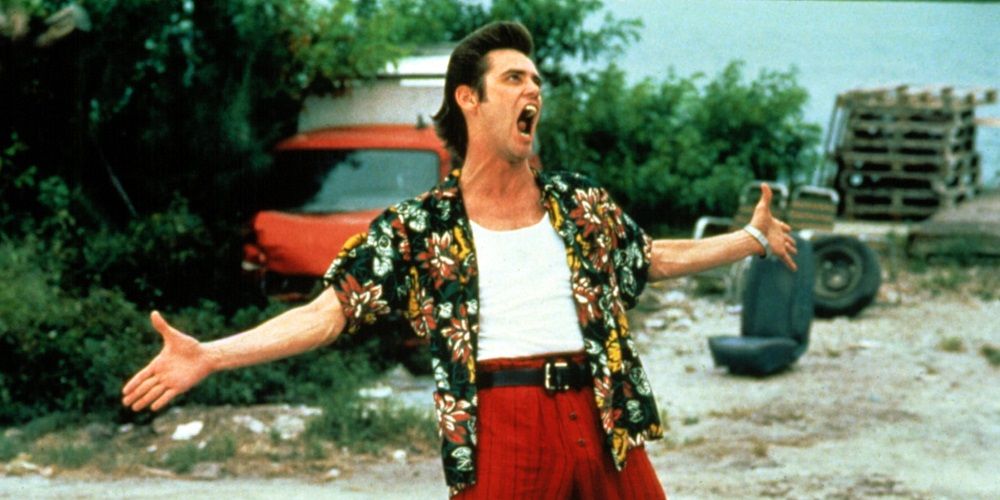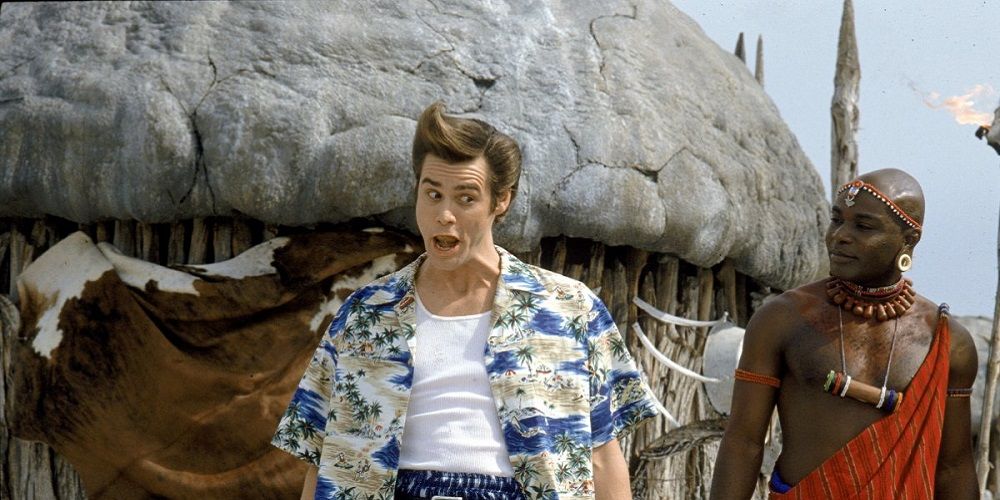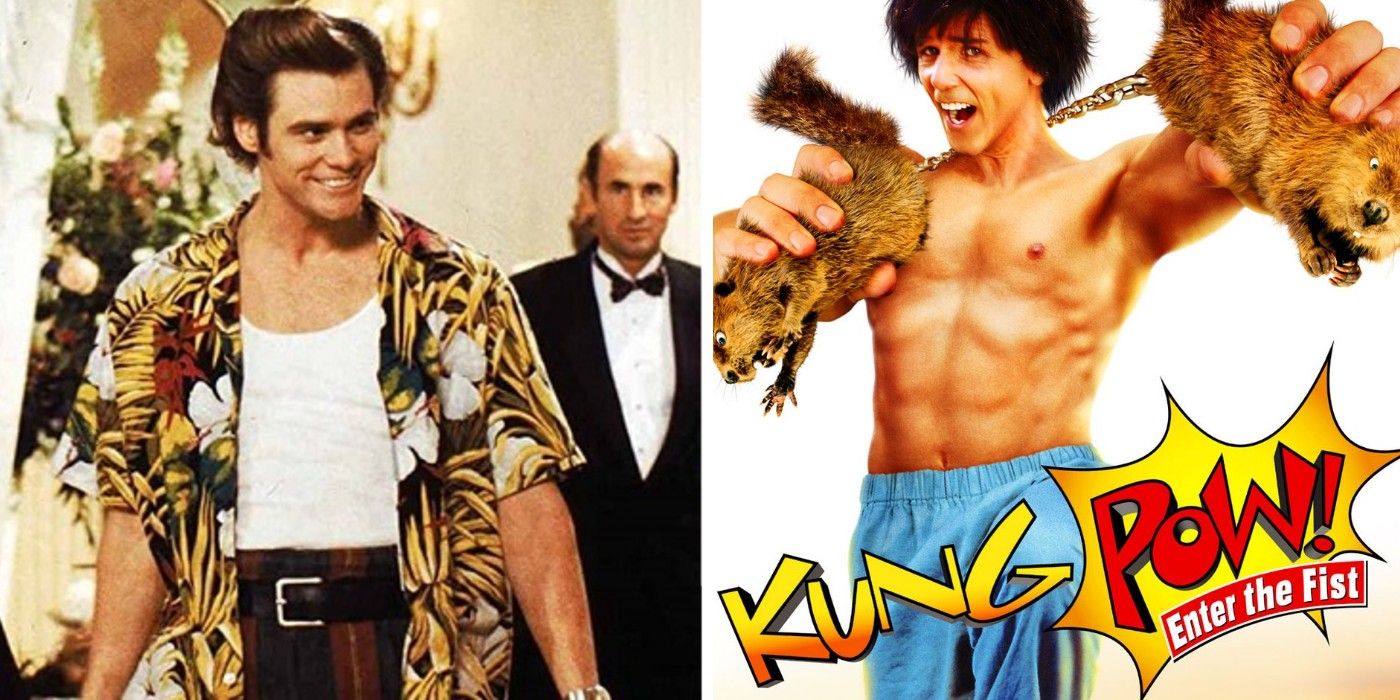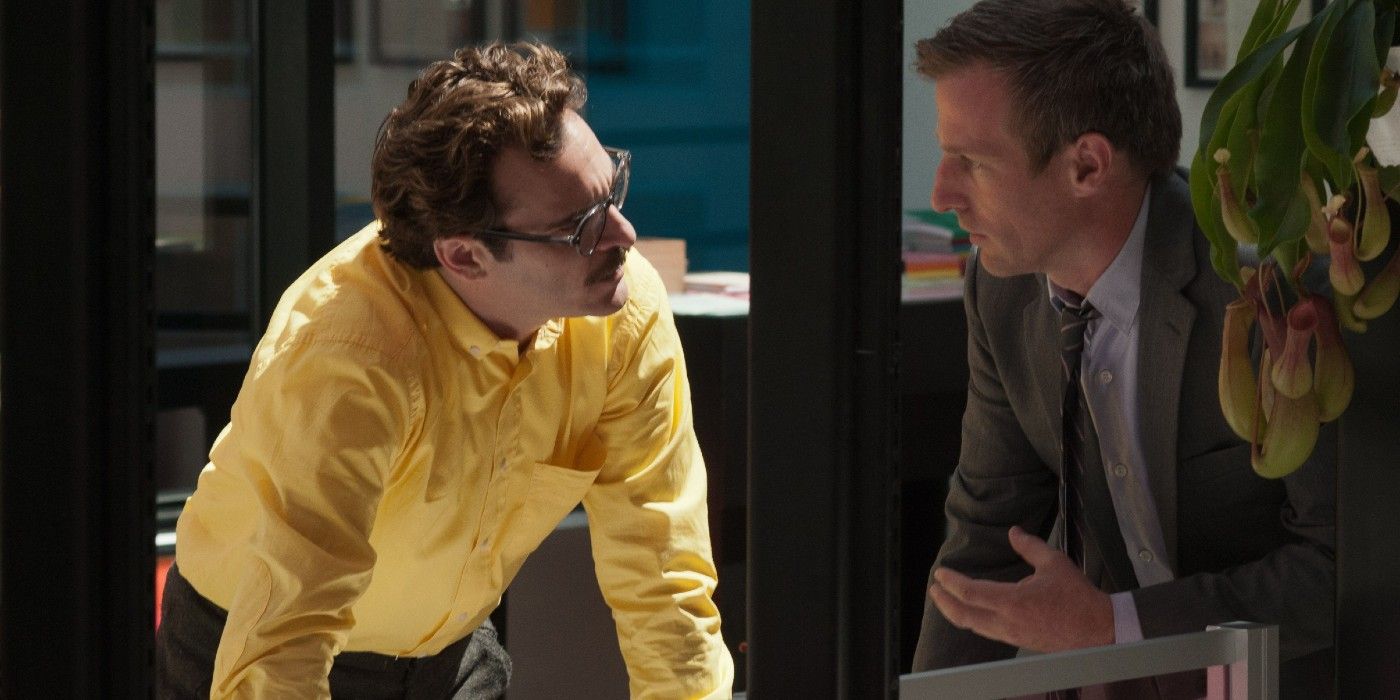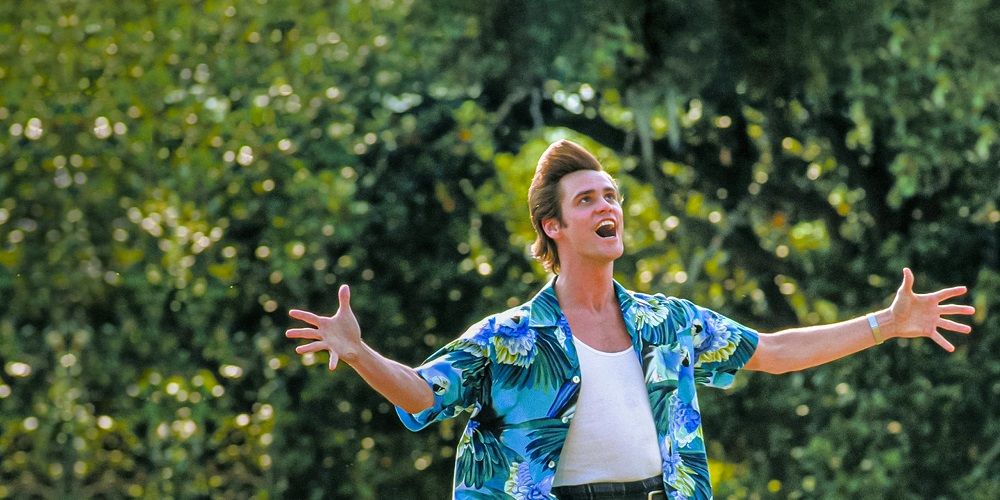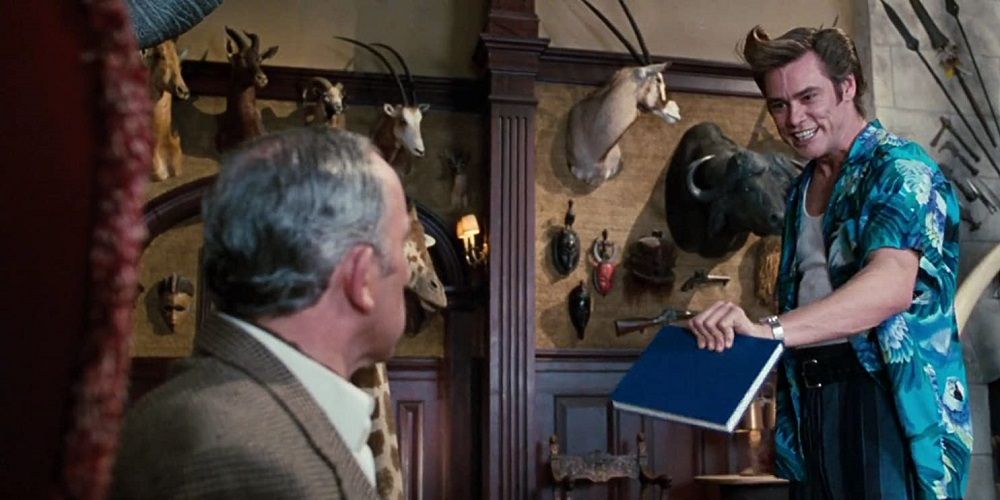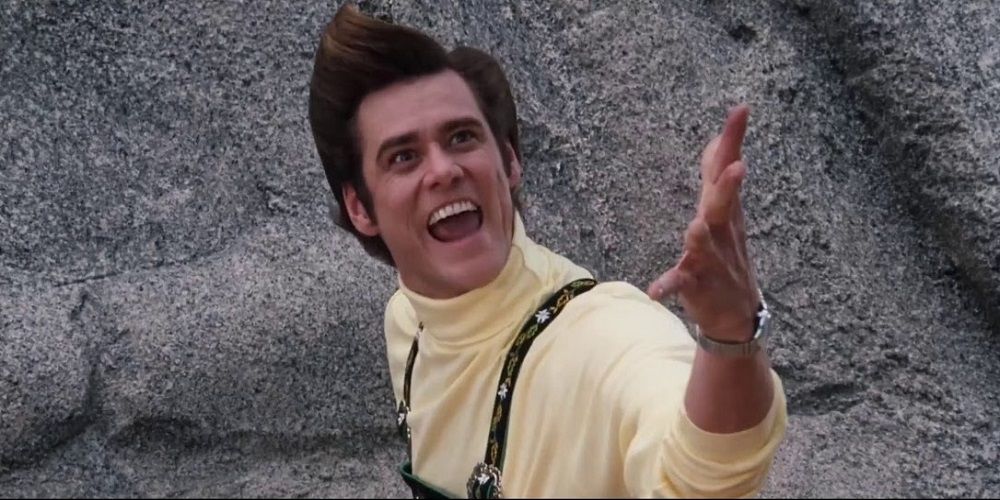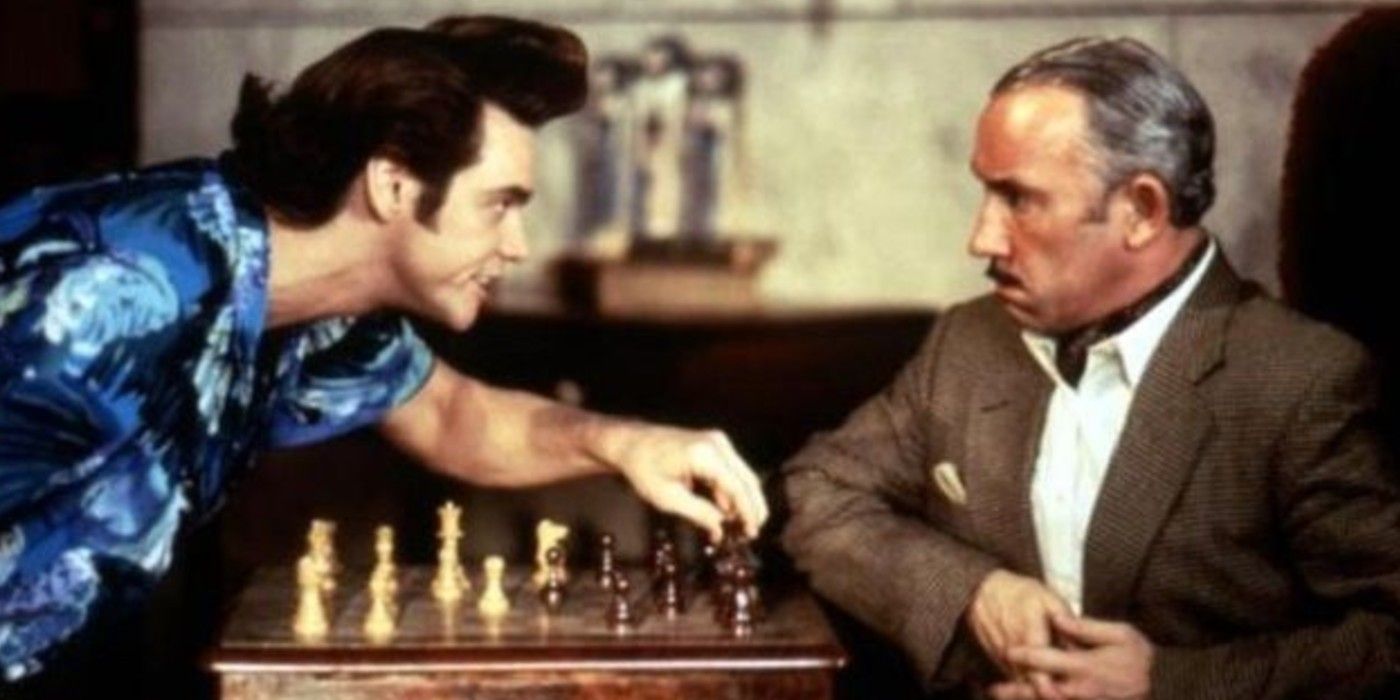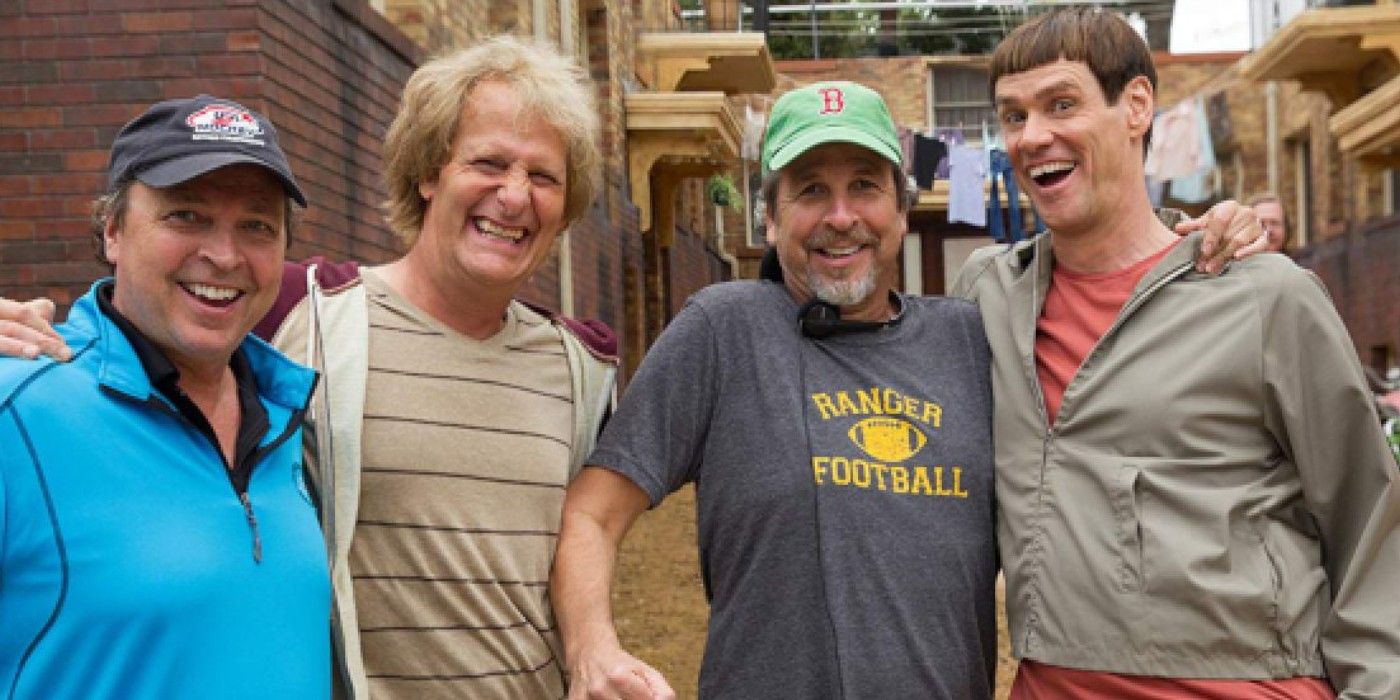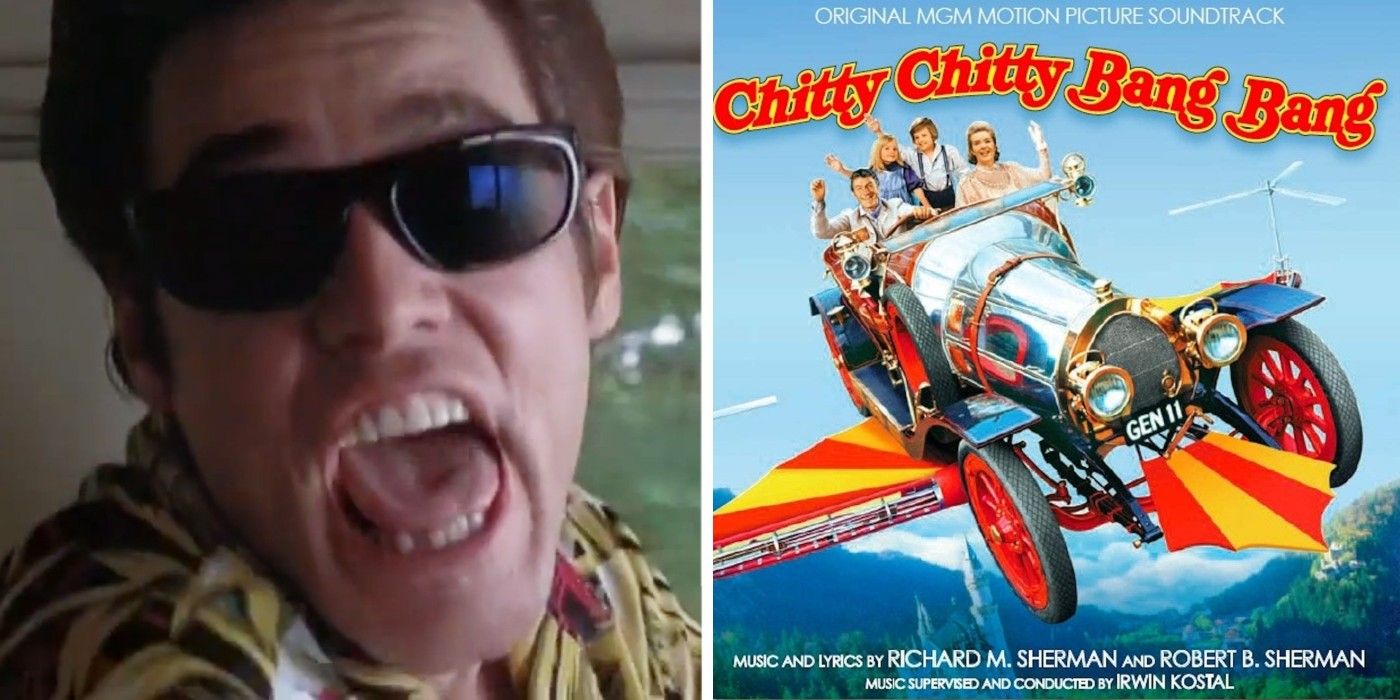Ace Ventura: When Nature Calls turns 25 years old this coming November. Set in the fictional village of Nibia, Africa, the film continues the comedic exploits of the preeminent pet detective, Ace Ventura (Jim Carrey), who is tasked with finding an extremely rare bat that is held sacred by local tribes.
Although the film did not strike as much of a cord among general filmgoers, When Nature Calls grossed nearly double the amount of its predecessor, garnering more than $212 million internationally against a $30 million budget. For comparison, the original earned roughly $107 on a $15 million investment. For more on the production history, here are 10 Behind-The-Scenes Facts About the Making of Ace Ventura: When Nature Calls.
Jim Carrey Was Contractually Obligated To Make The Sequel
According to costar Simon Callow, Jim Carrey had very little interest in reprising his role as Ace Ventura in a cinematic sequel. The only reason he agreed to make the film is that he had a contractual obligation to do so.
Despite his reticence, Morgan Creek Entertainment attempted to persuade Carrey to make several more Ace Ventura movies, to which he declined. Once When Nature Calls wrapped, Carrey realized he couldn't spend the rest of his career playing this one character. Until Dumb and Dumber To, it's the only franchise film sequel in which Carrey also appeared in the original.
Half Of The Budget Went To Jim Carrey
For his troubles, Jim Carrey was given a $15 million payday to reprise his role as Ace Ventura in When Nature Calls. The figure was negotiated by Carrey and Morgan Creek with help from the film's director and Carrey's longtime friend, Steve Oedekerk.
As a result, Carrey was paid exactly half of the film's entire $30 million budget. The pricetag set the market for Carrey's services, who would spend roughly the next decade demanding roughly $20 million per movie as one of Hollywood's most bankable movie stars.
The Original Director Was Replaced After Filming Began
When the film began production, Celtic Pride director Tom DeCerchio was attached to helm the project. Filming had already begun when DeCerchio was replaced by another first-time director.
Given the massive unexpected success of the first film, Morgan Creek gave Carrey permission to handpick the director of his choosing to oversee the sequel. Carrey swapped DeCerchio for his longtime friend and collaborator Steve Oedekerk, who wrote for Carrey on the TV series In Living Color and consulted on the script for Ace Ventura: Pet Detective. Oedekerk is probably best known for directing, writing and starring in Kung-Fu Pow! Enter the Fist.
Spike Jonze Wanted To Direct
Prior to electing Steve Oedekerk to direct the film, a young Spike Jonze (above, right) expressed interest in helming the project as his feature debut. It was Jim Carrey who turned him down, citing a lack of feature film experience as the main reason.
Carrey later expressed to Vulture that failing to hire Jonze to direct When Nature Calls was one of the biggest regrets of his career. At the time, Jonze was an in-demand music video director responsible for such iconic work as The Beastie Boys' "Sabotage," Weezer's "Buddy Holly," and "Undone - The Sweater Song." He would later go on direct The Beastie Boys' documentary, Beastie Boys Story and critically acclaimed movies such as Her and Adaptation.
Jim Carrey Had Some Gripes With The Script
According to Jim Carrey's Dumb and Dumber costar Jeff Daniels, one of the major gripes Carrey had about When Nature Calls from the onset was the subplot involving his fear of bats.
Carrey thought the idea was chintzy and argued with the director over changing the script so that Ace was merely allergic to bats, not fearful. In addition, Carrey was apprehensive about the potentially offensive depiction of the African natives in the film.
The Hunter's Trophies Are All Fake
Despite the use of several real-life animals while filming When Nature Calls -- even ones that do not coexist in the same African habitat (such as the chimps and rhinos) -- nearly all of the dead hunting trophies and stuffed animal-heads that are shown in the film are fake.
The decision to use fake animal props was made by director Steve Oedekerk, who simply could not stand to work under conditions that condone the sport hunting of endangered species.
There's A Cliffhanger Spoof
Several satirical references to past movies and TV shows can be found in When Nature Calls. For example, the opening rock-climbing sequence in which Ace makes a daring attempt to rescue a raccoon is a direct spoof of the 1993 Sylvester Stallone movie, Cliffhanger.
Later in the film when Ace is hit with a tranquilizer dart, he begins speaking in a southern accent directly patterned after Blanche Devereaux (Rue McClanahan) in the sitcom Golden Girls.
Jim Carey's Contract Clause Affected Co-Stars' Earnings
Jim Carrey spent a lot of time away from the production due to sick leave. Due to a clause in his contract, such illnesses were deemed an "Act of God," which meant producers did not have to pay fellow actors overtime for going over schedule.
This directly affected costar Simon Callow (above, right), whose contract expired prior to the completion of filming. But because his scenes were not finished due to Carrey's absence, Callow was forced to fly back and forth from his native UK to the set of the film and had deducted the cost of the plane tickets from his own salary.
The Farrelly Brothers Turned Down The Sequel
Prior to Carrey settling on Oedekerk, Bobby and Peter Farrelly were offered a chance to direct Ace Ventura: When Nature Calls. The two men previously directed Carrey the year prior in the smash-hit Dumb and Dumber and seemed like a perfect fit for the project.
However, after considering themselves the wrong people for the job, the Farrelly Brothers passed on the project. Carey and the brothers would reunite five years later on Me Myself and Irene and later on, Dumb and Dumber To.
The Chitty Chitty Bang Bang Moment Was Ad-Libbed
One of the most memorable scenes in When Nature Calls comes when Ace Ventura begins randomly singing the theme song to Chitty Chitty Bang Bang while en route to the consulate for the first time.
This scene was a result of Carrey completely forgetting his lines for the day and began ad-libbing the musical theme on the spot. Since both actors in the scene remained in character without laughing, Oedekerk loved the scene so much that he kept it in the final cut.

